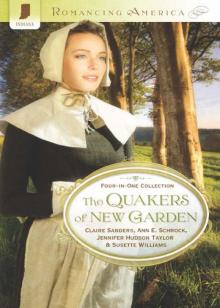- Home
- Claire Sanders
A Thousand Little Blessings
A Thousand Little Blessings Read online
Table of Contents
Title Page
Copyright
Dedication
1
2
3
4
5
6
7
8
9
10
11
12
13
14
15
Thank you
A Thousand Little Blessings
Claire Sanders
This is a work of fiction. Names, characters, places, and incidents either are the product of the author’s imagination or are used fictitiously, and any resemblance to actual persons living or dead, business establishments, events, or locales, is entirely coincidental.
A Thousand Little Blessings
COPYRIGHT 2014 by Claire Sanders
All rights reserved. No part of this book may be used or reproduced in any manner whatsoever without written permission of the author or Pelican Ventures, LLC except in the case of brief quotations embodied in critical articles or reviews.
eBook editions are licensed for your personal enjoyment only. eBooks may not be re-sold, copied or given to other people. If you would like to share an eBook edition, please purchase an additional copy for each person you share it with.
Contact Information: [email protected]
Scripture quotations, unless otherwise indicated are taken from the King James translation, public domain.
Cover Art by Nicola Martinez
White Rose Publishing, a division of Pelican Ventures, LLC
www.pelicanbookgroup.com PO Box 1738 *Aztec, NM * 87410
White Rose Publishing Circle and Rosebud logo is a trademark of Pelican Ventures, LLC
Publishing History
First White Rose Edition, 2014
Paperback Edition ISBN 978-1-61116-409-1
Electronic Edition ISBN 978-1-61116-408-4
Published in the United States of America
Dedication
For Kristin Morris
God is a refuge and our strength, an ever-present help in times of trouble. ~ Psalms 46
1
Burnet, Texas - March 1919
Henrietta Davis clenched her jaw and forced herself to look at the casket. The spray of yellow roses covering her mother’s final resting place was oddly cheerful for such a somber occasion. Not even her mother’s favorite flower could lessen the shock that quaked through Etta’s soul. Her mother’s life had been whisked away like a fragile blossom before a bitter winter wind, leaving Etta grasping for the cherished flower and finding nothing but cold air.
Reverend Martin stood in the Davis family cemetery and read from his dog-eared Bible in the same deep voice Etta heard every Sunday morning. The reassuring words stilled her trembling hands. Her mother was with her Lord, surrounded by love and reunited with her parents and grandparents. But the words did little to relieve the cold stone of grief lodged beneath Etta’s heart.
Next to her, Etta’s father shifted in the rickety folding chair the funeral home had supplied. Henry Davis had donned his most stoic face that morning, giving no hint of the keening grief she’d heard coming from his bedroom a few nights ago.
It was early spring, a time when birds sang with renewed vigor and dormant trees budded in promise.
But her father and she weren’t thinking about new life. They were burying the person who’d given them love, comfort, and joy.
Etta’s nose tingled, a sure sign tears were imminent. She took a deep breath and steeled herself. She wouldn’t embarrass her father by crying. He’d schooled her to portray their family as upright members of the community, always in control, never fodder for the town gossips. She raised her lace handkerchief and sniffed.
Her mother’s best friend, Sara Benson, leaned against Etta’s right shoulder. “It’s almost over. Almost.”
Etta nodded slightly and lifted her gaze. Through the black netting attached to her broad-brimmed hat, the cloud-dotted sky shone. How many times had her mother encouraged her to daydream on early spring days such as this? “What about that cloud?” she’d ask, her face as animated as a child’s. “It looks like an elephant.”
“No,” Etta would disagree. “It’s a poodle with a leash.”
“It’s an elepoodle,” her mother would pronounce, as though her word was the last to be uttered on the subject. “What? You’ve never heard of an elepoodle? They’re native to Finland.” Then she’d dissolve into girlish giggles and dare Etta to find another imaginary animal.
Etta’s father cleared his throat and stood. Was the service already over? He shook Rev. Martin’s hand and then crooked his elbow toward his daughter. Etta slipped her arm through his and walked down the gently sloping hill. Decorum surrounded her father like heavily-starched linen as they made their way toward the house.
Fellow mourners trailed after them.
Etta would be expected to fill her mother’s role as hostess, a job for which she felt woefully unprepared. How could she smile and chit-chat when all she wanted to do was crawl under the covers? Her queasy stomach clutched as she pasted a false smile on her face and stepped through the door.
Two middle-aged ladies dressed in black pushed themselves up from generously upholstered chairs in the parlor. The two matrons formed the church bereavement committee, a detail Etta had forgotten amidst the confusion of the week.
Mrs. Henrichson approached with open arms. “You poor thing. Come and sit down. We’ve got everything under control.”
Mrs. Stoutman nodded vigorously, causing the black feathers on her hat to quiver. “Don’t worry about a thing, Henrietta. We found your mother’s china and set out refreshments.”
Etta allowed Mrs. Henrichson to lead her to the dining room table. Her grandmother’s antique gold-rimmed plates held slices of cake and finger sandwiches. A silver coffeepot and a crystal pitcher of lemonade sat nearby.
“Mother never used these dishes,” Etta began and then censored herself. Her mother had cherished each dish as a memento of her own mother and kept them stored away, never to be endangered by careless hands. But it seemed trivial to make a fuss over dishes when the ladies had come to help. “Oh, it’s all right. Thank you for taking care of everything.”
A crescendo of noise swept into the dining room as friends and family made their way to the refreshments.
Her father shouldered his way through the crowd, shaking hands and nodding before exiting through the casement doors that led to the side courtyard.
Another tug of sympathy wrenched Etta’s heart.
Her father must want to get away from the crowd as much as she did. Her guests were quite content visiting with each other. Perhaps she could shirk her hostess duties for a few minutes. She forced herself to walk slowly up the polished oak stairs, but once out of sight, she ran into the quiet stillness of her bedroom.
After closing the door, she placed a hand on her roiling stomach and blew out a breath. How long would the guests stay? An hour? Two? She removed her hat and gloves, laid them on her dresser, and then, crossed to the windows that overlooked the courtyard.
Through the massive limbs of the live oak, Etta watched her father. He slumped in the wicker chair, slowly rubbing his left temple. She’d bring him some pills to relieve the pain as soon as she got downstairs. A soft knock sounded on her door. “Come in, Rosa.”
“It’s not Rosa. It’s me.” Sara entered the room carrying a cup and saucer. “Rosa’s in the kitchen. Do you need her?”
“No. I’ll be down in a few minutes. I just wanted to..uh…to take off my hat and gloves.”
Sara patted Etta’s arm. “I know, honey. Stay up here as long as you need. I brought
you some coffee. Two sugars, no cream, just the way you like it.”
“Thank you. You know me so well.”
“’Course I do. I was there on the day you were born.”
Sara was unlike her mother in so many ways, yet the two women had been best friends for years. Etta’s mother had been fair-haired and petite, but Sara was as tall as most men and her hair was as black as the jet beads she wore around her neck.
Etta sipped the hot coffee and returned her gaze to the courtyard. Several men had joined her father. “I’m worried about Papa.”
Sara leaned against the window frame. “Me, too. I wish he’d take some time off, but knowing him, he’ll be at the bank tomorrow.”
Several automobiles drove up and more people piled out.
“I can’t believe how many people are here. Seems as though the whole town is parked in our front yard.”
“Lots of people want to pay their respects. Catherine will be missed.” Sara pursed her lips in a sign of disapproval. “I see your Uncle Carl decided to show up. You’d think he’d make it to the services for his only sister. But then, he’s always been more interested in fun than in paying his respects. That man thrives on being the main attraction of whatever social circus he can find.”
Etta choked on the coffee.
Sara’s description of Uncle Carl was almost identical to her father’s. More than once Papa had referred to her uncle as “the family clown.”
Sara patted Etta’s back. “You OK, honey?”
Etta nodded and cleared her throat. “I’d best go downstairs.”
Sara brushed her fingertips through Etta’s hair. “You’re so pale. Why don’t you lie down for a while? I’ll bring you something to eat.”
Etta leaned her head toward the older woman’s shoulder, willing to surrender her constraint for a moment of maternal affection, but the unmistakable crash of dropped dishes jerked her to full attention. “I should go,” Etta said as she brushed her hands down her black serge skirt. “I’m sure Rosa needs help.”
Sara reached for her, but Etta couldn’t give in to her desire for comfort. One kind touch and her false bravado would collapse.
The family’s housekeeper stood at the sink, elbow deep in suds while Mrs. Stoutman and Mrs. Henrichson threw away broken pieces of china. Rosa’s dark brows were drawn into a fierce scowl, an ominous portent of the scolding brewing in her mind.
Although she didn’t think it was possible, Etta’s heart fell even further as she looked at the ruined dishes. “Thank you so much, Mrs. Stoutman. I’ll finish this.” Etta set her cup and saucer on the counter and took the broom and dustpan from the large-bosomed woman. “You, too, Mrs. Henrichson. It’s so kind of you to help at a time like this.”
Mrs. Stoutman pulled Etta’s head down to her shoulder. “Oh, Henrietta, I know you’re going to miss your momma. Sometimes I still pine for my momma, and she’s been gone for nearly thirty years.”
Etta’s nose itched dangerously from Mrs. Stoutman’s honeysuckle-scented talc. She sniffed in an effort to stifle the sneeze, and Mrs. Henrichson threw her arms around Etta, sandwiching her between the two matrons. “Go ahead and cry all you want,” Mrs. Henrichson said. “Nobody would fault you for crying on a day like this.”
“I’m all right.” Etta’s voice was muffled between the women’s soft bodies. “Just let me get these broken dishes cleaned up.” She struggled to escape, but the two ladies crowded closer.
“You’re so lucky you still have your mother,” Mrs. Stoutman said to Mrs. Henrichson. “There’s nothing worse than burying your mother.”
“I know that’s true,” Mrs. Henrichson replied. “I remember your mother’s funeral as if it was yesterday. So many flowers.”
As the two ladies talked on, Etta slid slowly toward the floor until she was free of their suffocating condolences. Breathing deeply, she backed away from the pair and picked up the largest pieces of broken china.
Mrs. Stoutman retrieved a tray of finger sandwiches. “How many pies do we have left?”
“Only three.” Mrs. Henrichson slid an apple pie onto a silver platter. “Maybe I should cut thinner slices.”
Mrs. Stoutman backed through the kitchen’s swinging door. “Good idea.”
Etta’s shoulders slumped in relief once the ladies left the kitchen. She wanted her normal life back. She wanted her mother.
Rosa touched Etta’s arm. “Are you all right, mija?”
As Etta looked into Rosa’s kind, dark eyes, gratitude welled in her soul. Mija. Rosa had used that endearment since she’d first come to work for her family fifteen years ago. Did Rosa really think of Etta as her daughter? “I’ll be all right. Don’t worry.” Etta emptied the dust pan. “Let me help you with the dishes.”
Rosa made a clucking noise with her tongue. “No, no. Why don’t you check on your Papa? Bring him some coffee.”
Etta tied a white linen hostess apron around her waist, slipped a small tin of pain reliever into the pocket, and prepared a tray.
Her father and four other men sat in wicker chairs beneath the live oaks that shaded the house. As she approached, all of the men stood.
“Keep your seats, gentlemen. I’ve brought fresh coffee. Who would like a refill?”
Judge Thompson raised his cup and saucer. “Right here, Henrietta. I was just telling your father what a lovely service your mother had.”
Etta set the tray on the wicker table and turned to fill his cup. “Thank you, Judge.” She turned to the man on his right. “What about you, Mr. Mayor?”
Edgar Robinson rubbed his balding head. “I probably shouldn’t but…oh, go ahead, fill ‘er up.”
Etta complied and moved on to James Moore, owner of the largest store in town.
Mr. Moore put his hand over his cup. “None for me, Henrietta. If I drink any more I’ll be awake until three in the morning.”
She moved to her father’s side and offered him the pills. He shook his head, declining the medication, but held up his cup for more coffee.
The youngest of the men stood. “Why don’t you take my chair, Miss Davis?”
Etta smiled at William Clark, the county prosecutor. He had a reputation as a tenacious lawyer with a notable record of convictions, but his round baby face and blond hair gave him the appearance of a young boy, rather than a determined officer of the law. “Thank you, Mr. Clark.” She returned the coffeepot to the tray and settled into the chair.
The men were curiously quiet. Perhaps her presence put a damper on their conversation, but she’d sat in on many of their meetings before. The four men formed the bank’s Board of Directors.
Etta studied her father. His graying hair was combed as meticulously as usual, and his starched collar showed no sign of wilting, but his face bore witness to his grief. The lines on his forehead had deepened and his usual quick smile had abandoned him. He rubbed a palm along the crease in his trousers and broke the silence. “I plan to stay home tomorrow. I have quite a bit of correspondence to catch up on. I’ll be in the office the next day.”
Judge Thompson’s bushy white eyebrows drew together. “Don’t rush it, Henry. The bank’s not going anywhere.”
“The judge is right,” Mayor Robinson said. “The bank will run as smoothly as ever until you come back.”
“I need to keep busy,” Papa said. “Otherwise…”
“Perhaps you’d like some time to work with your horses,” William Clark suggested. “My mother says you’re sure to win top prize at the Travis County show this summer.”
Etta sent silent thanks to William. Her father’s only interest outside the bank was his Arabians, and William had hit just the right note to lift his mood.
“I hope you’re right about that,” Papa answered. “My wife used to say my horses were as beautiful as a well-kept secret. My stallion--”
“Here you all are!” Everyone turned to see who had hailed them in such a jolly manner. Uncle Carl lifted a hand in greeting. “I see you’re enjoying this beautiful spring weat
her.”
The men sighed unanimously as they turned their attention away from Carl.
Oblivious to their unenthusiastic response, Uncle Carl pulled a small side table into the circle and sat on it. He looked like a parrot in a group of crows. All the men had dressed in black, but Carl sported a beige suit with a bright blue vest. His sharp-pointed shoes were polished so brightly they reflected the sunlight. “What were you all talking about?”
Mayor Robinson answered first. “We were just advising Henry to take a few days off.”
“I hope you do,” Carl said to Henry as he straightened the blue bow tie that matched his vest. “I’m simply bereft at having lost my dear sister. I can hardly imagine going back to work right away. You take your time, Henry. I’ll take care of any business that can’t wait until you return.”
The members of the board exchanged gazes.
“Carl,” her father said, “would you please carry that tray to the kitchen for Etta?”
“Of course.” Carl smoothed his sandy-blond hair and lifted the tray. “You coming, Etta?”
Her father’s request was as transparent as a liar’s promise, but Carl didn’t see through his ploy to get him to leave.
Etta trailed Carl into the kitchen.
Most of the visitors had left, and the women of the Bereavement Committee were packing up.
“Thank you, ladies,” she said. “My father and I appreciate your help.”
Carl placed a hand over his heart. “Losing someone is never easy, but the kindness of neighbors eases the pain.”
Mayor Robinson’s wife slipped her arm around the crook of Carl’s elbow. “I know you’ll miss your only sister. We’ll all miss Catherine.”
The other ladies made noises of assent.
Sara Benson held out her arms the way a hen uses its wings to gather chicks. “Time for us to leave, ladies. Etta and Henry need their rest now.”
“Allow me to carry those boxes,” Carl said to Mrs. Stoutman. “I’ll be leaving as well, Etta,” he said over his shoulder. “But I’ll call tomorrow to see how you and Henry are doing.”

 The Last Lonely Christmas
The Last Lonely Christmas Quakers of New Garden
Quakers of New Garden From The Ashes
From The Ashes A Thousand Little Blessings
A Thousand Little Blessings Naomi's Choice
Naomi's Choice